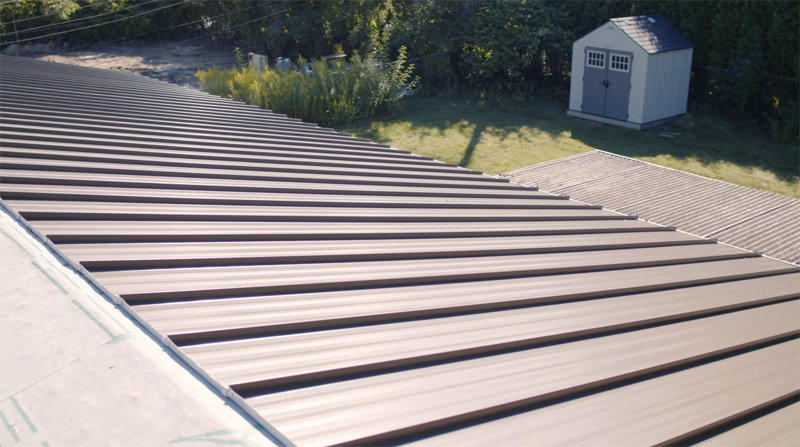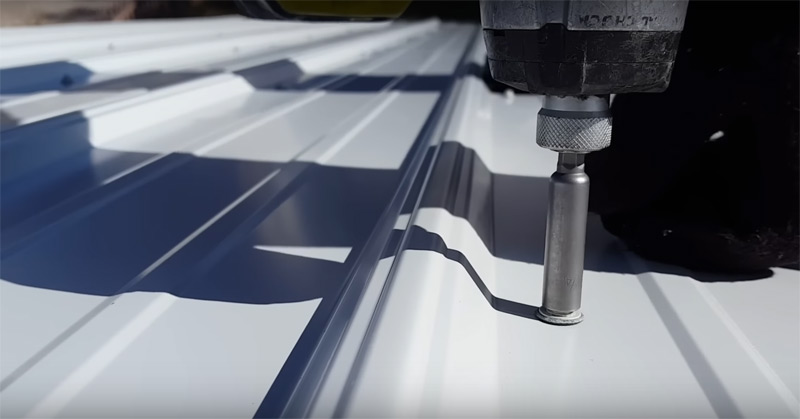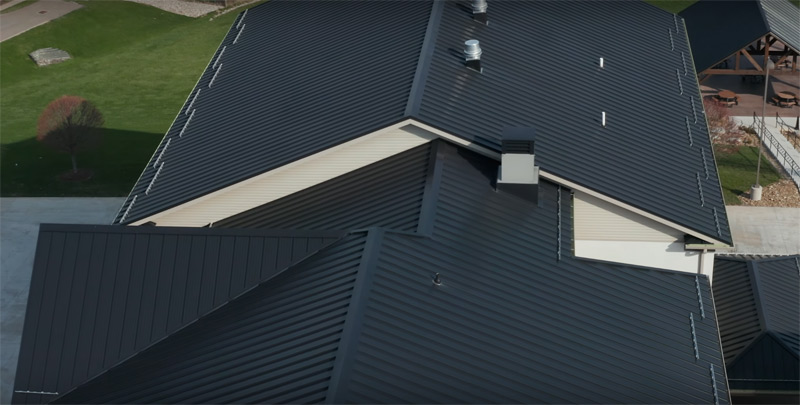Metal Roofing Costs. The Average Cost To Install A Metal Roof In 2024
| Steel | $6 - $12,5 per sq.ft. |
| Aluminum | $11,5 - $13,5 per sq.ft. |
| Cooper | $20 - $40 per sq.ft. |
| Stone-Coated Steel | $11 - $13 per sq.ft. |
| Steel | $6 - $12,5 per sq.ft. |
| Aluminum | $11,5 - $13,5 per sq.ft. |
| Cooper | $20 - $40 per sq.ft. |
| Stone-Coated Steel | $11 - $13 per sq.ft. |
The cost to install a metal roof typically ranges between $9.70 and $16.90 per square foot, or $970 to $1,690 per square (100 sq. ft.), depending on the material, roof complexity, and location. For an average 1,900-2,100 sq. ft. roof, homeowners can expect to pay between $18,500 and $35,500, including materials, installation, permits, and warranties.

Before exploring the cost breakdown, it's important to understand the most common types of metals used in roofing, each with its unique benefits and drawbacks.
Steel is one of the most widely used materials for metal roofing, available in various styles, including galvanized steel, Galvalume steel, and stone-coated steel.
Pros:
Cons:
Average Cost:

Aluminum is known for its lightweight, rust-resistant properties, making it ideal for coastal environments with salt exposure.
Pros:
Cons:
Average Cost:

Copper is a premium roofing material prized for its natural beauty, long lifespan, and resistance to corrosion. Over time, copper roofs develop a distinctive green patina.
Pros:
Cons:
Average Cost:
Zinc is another premium material known for its durability and self-healing properties, as scratches or blemishes will eventually fade over time due to its patina process.
Pros:
Cons:
Average Cost:
| Metal Roofing Type | Cost (per sq. ft.) | Total Installation Cost (for 1,900-2,100 sq. ft. roof) |
|---|---|---|
| Copper (shingles/standing seam) | $20 - $40 | $39,000 - $75,000 |
| Aluminum (shingles/standing seam) | $11.5 - $13.5 | $23,750 - $28,350 |
| Steel shingles | $9 - $11 | $15,200 - $23,000 |
| Steel standing seam | $10 - $12.5 | $20,900 - $26,250 |
| Corrugated steel | $6 - $9 | $11,400 - $18,900 |
| Stone-coated steel | $11.5 - $13 | $21,850 - $27,300 |
| Feature | Metal Roof | Asphalt Shingle |
|---|---|---|
| Durability | 50+ years | 15-30 years |
| Cost | $9.70 to $40 per sq. ft. | $3 to $7 per sq. ft. |
| Maintenance | Low | Moderate |
| Weather Resistance | Excellent (hail, wind, fire) | Fair (vulnerable to wind and hail damage) |
| Energy Efficiency | Highly reflective, reduces cooling costs | Low reflectivity, less energy efficient |
Yes, in many cases, metal roofing can be installed over an existing asphalt roof, provided the roof is in good condition. However, it’s crucial to check local building codes and ensure proper ventilation and drainage.
Metal roofs can last between 40 and 70 years, depending on the material. Copper and zinc roofs can last more than 100 years.
Yes, a high-quality synthetic underlayment is recommended for metal roofs to provide a moisture barrier and reduce noise. Felt is also an option but is less durable.
Important elements include flashing for chimneys and skylights, gutters, and proper ventilation. Flashing typically costs $500 to $1,500 depending on the complexity.
Yes, metal roofs are an excellent surface for solar panel installation due to their longevity and strength. Standing seam metal roofs make it especially easy to install solar panels without drilling holes, as mounting brackets can attach to the seams.
On average, metal roofs cost between $9.70 and $40 per square foot, while asphalt shingles typically cost between $3 and $7 per square foot. While metal roofs are more expensive upfront, they last longer and require less maintenance.
Yes, metal roofs reflect sunlight, which can reduce cooling costs by 10-25%, making them a great choice for energy efficiency, especially in hot climates.
Metal roofs are ideal in coastal regions like Florida and Texas due to their resistance to saltwater corrosion, as well as in areas prone to wildfires such as California, thanks to their fire resistance. They are also great in northern states for snow shedding.
Yes, your roof needs to be measured to provide a free detailed estimate for a metal roof installation. Accurate measurements allow contractors to determine the exact amount of materials needed, calculate labor costs, and assess any additional requirements, such as underlayment, flashing, or specialized fittings. Roofing professionals usually measure in "squares," where 1 square equals 100 square feet, to estimate costs accurately based on the roof's total surface area and complexity.
They may also consider factors like roof slope, dormers, and any architectural features that could affect installation. Some contractors offer on-site evaluations or aerial measurements using a roof measuring app to ensure precision.